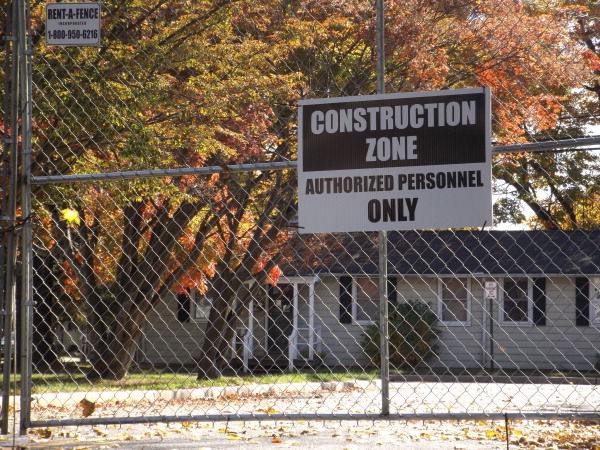By Philip Sean Curran, Staff Writer
Princeton University could begin demolishing a former graduate student housing complex on Harrison Street possibly as early as next week to make room for what likely be new university faculty and staff housing.
As of Wednesday morning, the school had not filed a demolition permit with the municipal building department for the expected six-to-eight-week long project, one the school would like to start Monday, town officials said. The 33-acre Butler tract is composed of 113 military barracks style structures that closed over the summer.
For its part, the school said this week that it is eyeing to have its demolition subcontractor work Mondays to Fridays with some Saturdays sprinkled in if necessary due to bad weather. Trucks will haul debris exiting the site on Harrison Street and heading to Route 1, said university director of community and regional affairs Kristin S. Appelget by phone Wednesday.
During the demolition, the site will be wet down to control the spread of dust. No dust monitoring machines will be used, although a municipal representative will be on site during the project.
Once the site is cleared, the construction fence around the property will remain up until the spring, she said. The school plans to plant new grass.
Residents who live in the area are watching with interest what goes on at the site.
At a neighborhood meeting that was closed to the press, university officials on Tuesday were joined by municipal staff from the engineering and health departments to answer questions from about 60 residents who attended the forum on campus at the Lewis Library.
Councilwoman Jo S. Butler, the only member of the governing body to attend, said Wednesday that residents have concerns about how the university plans to redevelop the property, located in a residential section of town.
“People’s homes are important to them,” Ms. Butler said.
The school is eyeing housing for faculty and staff, although the university Board of Trustees would have to approve that as part of a new campus master plan, Ms. Appelget said.
Residents have expressed concerns due to the use of lead-based paint in the past at the facility. Municipal Health Officer Jeffrey C. Grosser said Wednesday that wood windows and porch railings that may have been treated with the paint are being removed before demolition.
Mr. Grosser said that unlike the razing of the former Princeton Hospital, this is a “much smaller demolition job” of one-story buildings.
In what was described as a student’s blog that had been posted on the university website, there was a message telling residents of the Butler Tract not to plant food-bearing plants near their apartments.
“Past use of lead-based paints on the buildings can endanger your health if you grow food for consumption near the units,” the blog read in part.
Ms. Appelget said there is no reason to believe the ground is contaminated. Because the school is not hauling away the dirt from the site, the university is not required to test the ground soil, Ms. Butler said.

